EDUCATION
Secondary School Level
The Ecton Hill Field Studies Association (EHFSA)
EHFSA has for many years run tutored one-day courses to support A level science courses in Chemistry and Geology. Recent developments include one-day courses for GCSE students, and also KS3 and KS2 pupils, with activities tailored to the ages of the pupils.
Both Chemistry and Geology courses focus on the application of these sciences to some or all of the following:
- the unusual copper mineralisation at Ecton, and the geological setting
- the mining of these ores
- the collection and identification of the minerals present
- the separation of the economic minerals
- the extraction of copper from these.
Courses can be tailored to the needs of different A level specifications on request, including fieldwork requirements for Geology and practical aspects of engineering geology. All A level courses provide the opportunity for an underground visit into Salt’s Level to see the mineralisation, and understand how the miners were able to make the mine such a profitable enterprise.
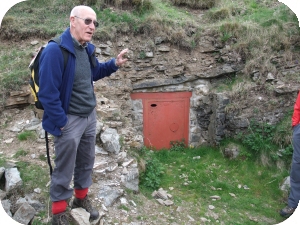
IoM3 Schools Affiliate Scheme
The Trust’s facilities are available to support the Schools Affiliate Scheme of the Institute of Materials, Minerals and Mining. This scheme aims to excite young people to the importance of careers in its fields, and in which there are 320 schools.
Tertiary Education Level
The facilities are used by several tertiary institutions:Keele University and Derby University undergraduate geologists for one day. The Camborne School of Mines (Exeter University) use Ecton for practical exercises in surveying.
Archaeological, Biological and Community Activities
The Trust is open to any proposals from any group seeking to arrange activities in line with the stated objectives.
Primary Education Level
Suitable day courses for primary level (KS2) pupils are now available and these ‘tick many of the boxes’ in the National Curriculum across several subjects.
If you would like to contact us for further information, please email our secretary – you will get a reply, but may have to wait a little, as none of us is working full-time at Ecton – we are all volunteers!



 The powder house, where dangerous explosives were stored. This small shed was placed well away from other buildings and was erected in 1884. The interior was originally lined with wooden panels as an added precaution against accidentally creating sparks.
The powder house, where dangerous explosives were stored. This small shed was placed well away from other buildings and was erected in 1884. The interior was originally lined with wooden panels as an added precaution against accidentally creating sparks.

 was lowered on one side and it was converted to a field barn. The steam engine was located in the far half of the building, while its boiler was in the near half. A short distance upslope there was a small reservoir pond for the boilers fed by water brought up from the mine.
was lowered on one side and it was converted to a field barn. The steam engine was located in the far half of the building, while its boiler was in the near half. A short distance upslope there was a small reservoir pond for the boilers fed by water brought up from the mine.


 In the 1760s-80s the internationally important Deep Ecton Copper Mine made a fortune for the Dukes of Devonshire. The first copper was mined here long before, in the Bronze Age over 3,500 years ago. The Dukes, who owned northern and western parts of the hill, had their mines worked in-house for over 50 years from 1760. From the 1820s private mining companies embarked on a fruitless search for further rich ore deposits. The mines were finally abandoned in 1889. While the 19th century ventures lost investors’ money, with them at best only finding other peoples’ leavings, they kept local miners in work for decades.
In the 1760s-80s the internationally important Deep Ecton Copper Mine made a fortune for the Dukes of Devonshire. The first copper was mined here long before, in the Bronze Age over 3,500 years ago. The Dukes, who owned northern and western parts of the hill, had their mines worked in-house for over 50 years from 1760. From the 1820s private mining companies embarked on a fruitless search for further rich ore deposits. The mines were finally abandoned in 1889. While the 19th century ventures lost investors’ money, with them at best only finding other peoples’ leavings, they kept local miners in work for decades.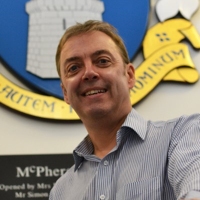
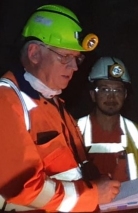

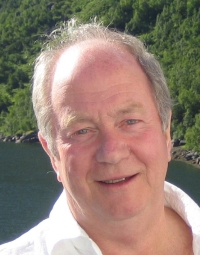
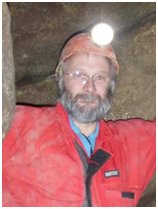 I am an exploration and mining geologist (C. Geol) with over 25 years of experience in the deep geological disposal of radioactive waste and 7 years of experience of exploration, environmental impact assessment and mining feasibility for the Kayelekera uranium deposit in Northern Malawi, Africa. I retired from the British Geological Survey in 2016 and am currently a member of the Government’s Committee on Radioactive Waste Disposal. I undertook a PhD on caves and mines in the Peak District and, as an active caver and mine explorer, have been studying the underground world of the Peak District since the mid 1970’s, including the mines of the Ecton Area. I am a director (editor) of the Peak District Mines Historical Society and the mine manager of their Temple Mine in Matlock Bath.
I am an exploration and mining geologist (C. Geol) with over 25 years of experience in the deep geological disposal of radioactive waste and 7 years of experience of exploration, environmental impact assessment and mining feasibility for the Kayelekera uranium deposit in Northern Malawi, Africa. I retired from the British Geological Survey in 2016 and am currently a member of the Government’s Committee on Radioactive Waste Disposal. I undertook a PhD on caves and mines in the Peak District and, as an active caver and mine explorer, have been studying the underground world of the Peak District since the mid 1970’s, including the mines of the Ecton Area. I am a director (editor) of the Peak District Mines Historical Society and the mine manager of their Temple Mine in Matlock Bath.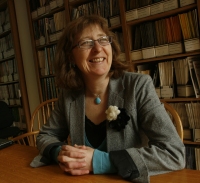 mongst geologists and others involved in the application of geoscience, particularly through the promotion of professional titles such as CEng, CGeol, and EurGeol. She has served on the Council of the Geological Society of London and is a past President of the European Federation of Geologists. For many years, she has been a member of the Pan European Reserves and Resources Reporting Committee (PERC).
mongst geologists and others involved in the application of geoscience, particularly through the promotion of professional titles such as CEng, CGeol, and EurGeol. She has served on the Council of the Geological Society of London and is a past President of the European Federation of Geologists. For many years, she has been a member of the Pan European Reserves and Resources Reporting Committee (PERC). Phil in Organic Chemistry, Nottingham Uni 1977-79, awarded 1981
Phil in Organic Chemistry, Nottingham Uni 1977-79, awarded 1981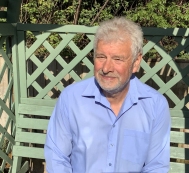 I am a geoscientist with more than 45 years of experience. After working as a mine geologist in the Yorkshire Coalfield for 12 years, I moved on to seismic exploration for coal, potash and other minerals focussing on seismic interpretation and delineating geological structure to aid mine planning. My prospect experience includes projects in UK, Spain, Turkey, Australia, Africa, Argentina and Canada.
I am a geoscientist with more than 45 years of experience. After working as a mine geologist in the Yorkshire Coalfield for 12 years, I moved on to seismic exploration for coal, potash and other minerals focussing on seismic interpretation and delineating geological structure to aid mine planning. My prospect experience includes projects in UK, Spain, Turkey, Australia, Africa, Argentina and Canada.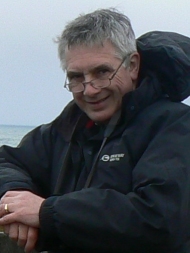 ng and engineering around the world. Although I am now retired I continue to hold Board appointments with national and international regulatory and standards organisations which I find professionally stimulating and thoroughly rewarding.
ng and engineering around the world. Although I am now retired I continue to hold Board appointments with national and international regulatory and standards organisations which I find professionally stimulating and thoroughly rewarding.